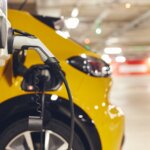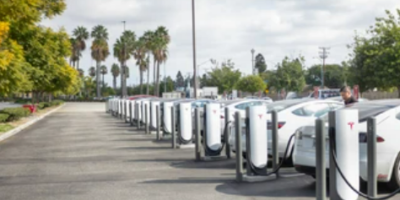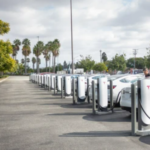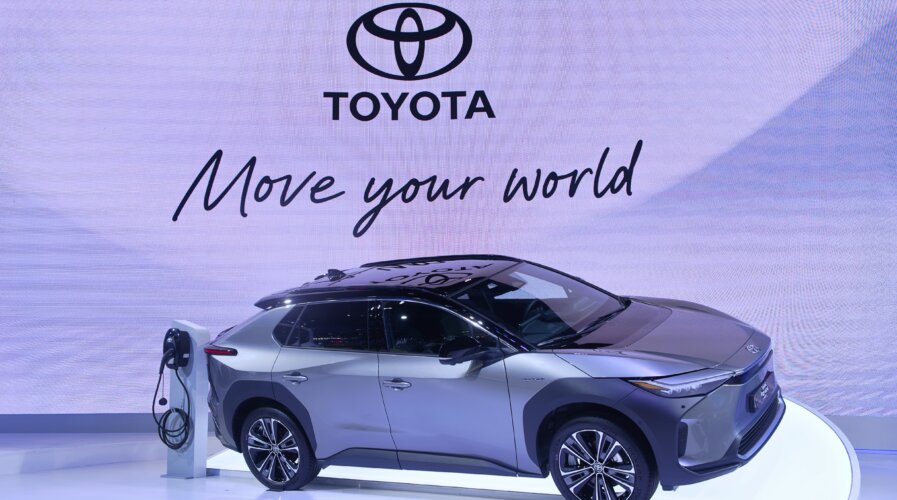
Toyota wants to help Thailand become the EV capital of Southeast Asia. (Image by Shutterstock)
Toyota to help Thailand become EV capital of SEA
- Thailand is the fastest growing EV market in Southeast Asia.
- Toyota to help Thailand develop local EV industry.
- Chinese EVs are the most popular in Thailand currently.
While the US is known for the electric vehicle (EV) industry, the growth has now shifted to Asia, with emerging EV markets and technology making it one of the fastest-growing sectors in the world. In fact, Asia is home to some of the largest and most innovative EV markets, such as China, Japan, and South Korea, as well as some of the emerging ones, such as India and the ASEAN region.
According to a report by McKinsey, Asia accounts for the largest share of the battery electric vehicle (BEV) market worldwide, with more than 60% of global BEV sales in 2021. China continues to be the leader in EV production and adoption, with more than 13 million EVs expected to be produced in 2023.
China also owned 40% of the EV market share in 2022 and has the largest number of EV chargers in the region. In terms of manufacturers, Chinese EVs continue to dominate the EV market globally. China has the greatest number of EV startups in the world and while the Tesla Model Y was the most sold EV model in 2022, more Chinese-made EV models were sold globally as well.
Apart from China, Japan and South Korea are also major players in the EV industry, with strong capabilities in battery and vehicle technology. Japan is forecasted to produce more than 2.5 million EVs in 2023 and South Korea more than 1.8 million. Both countries have ambitious targets to increase their EV adoption, with Japan aiming for 50% of new car sales to be EVs by 2030 and South Korea aiming for 33%.
India is also an emerging EV market, despite its late entry. While the EV market share in India is still relatively low compared to the rest of the world, the government is pushing for the adoption of more EVs. This includes offering incentives to vehicle manufacturers to build EVs in India as well as plans to reduce carbon emissions in the country by replacing its diesel-powered public buses with electric ones instead.
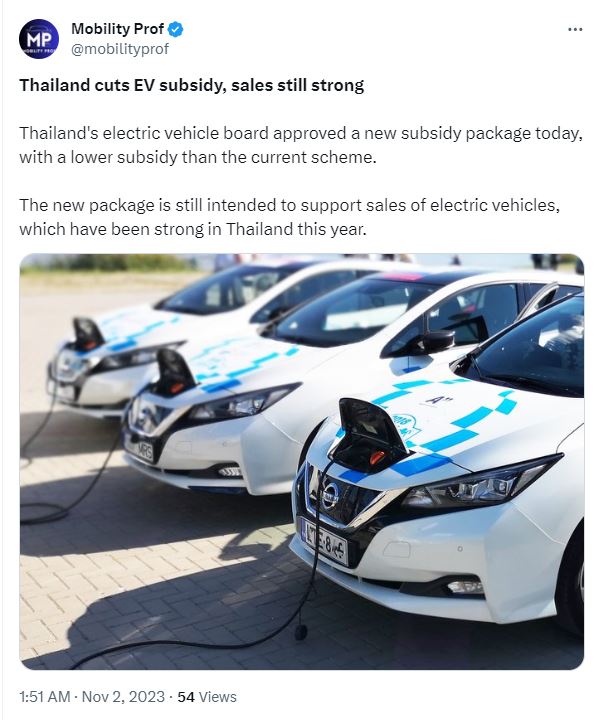
Thailand’s electric vehicle board approved a new subsidy package, with a lower subsidy than the current scheme.
EVs in Southeast Asia
In Southeast Asia, EV adoption differs among countries in the region. Singapore currently has the most connected EV ecosystem in the region. There are more than 1,800 public charging points available. The Government of Singapore plans to install 60,000 more charging points by the end of 2030.
A report by Mordor Intelligence estimates that nearly 54% of new car sales and 33% of global car fleets are expected to be electric by 2040. Of that number, more than 50% will be battery-electric, with the ASEAN region being the prominent hotspot for sales of the automotive fleet.
In March 2022, Thailand’s government adopted new government incentives to accelerate the transition to electric vehicles. The incentives are part of the Thai government’s plan to convert half of the country’s total car production to electric vehicles by 2030. Indonesia also plans to electrify 20% of its new vehicles by 2025. Additionally, the country aims for electric vehicles to account for 20% of total vehicle exports by 2025.
According to research from Counterpoint Research, Chinese automakers dominate Southeast Asia’s fast-growing electric vehicle market, selling three out of every four EVs in the first quarter of this year. Thailand, which has the most EVs in the region, also accounts for almost 79% of all EVs sold in Southeast Asia in the first quarter of 2023.
Thailand has offered incentives to consumers to make EVs attractive, and subsidies to automakers to build more EVs locally. That has attracted a wave of investments by Chinese carmakers in local manufacturing, including Great Wall Motor and BYD.
Malaysia and Indonesia have also echoed Thailand in their move to offer incentives and subsidies for EVs. Indonesia in particular is hoping to lure Tesla to set up a manufacturing facility in the country. Tesla recently announced plans to set up a center of excellence in Malaysia.
Currently, the only successful EV manufacturer in the region is in Vietnam. VinFast has become a dominant player in the EV industry, exporting its vehicles to Europe and the US as well as selling them in domestic and regional markets. Despite this success though, Vietnam’s EV adoption is still in its nascent stages.
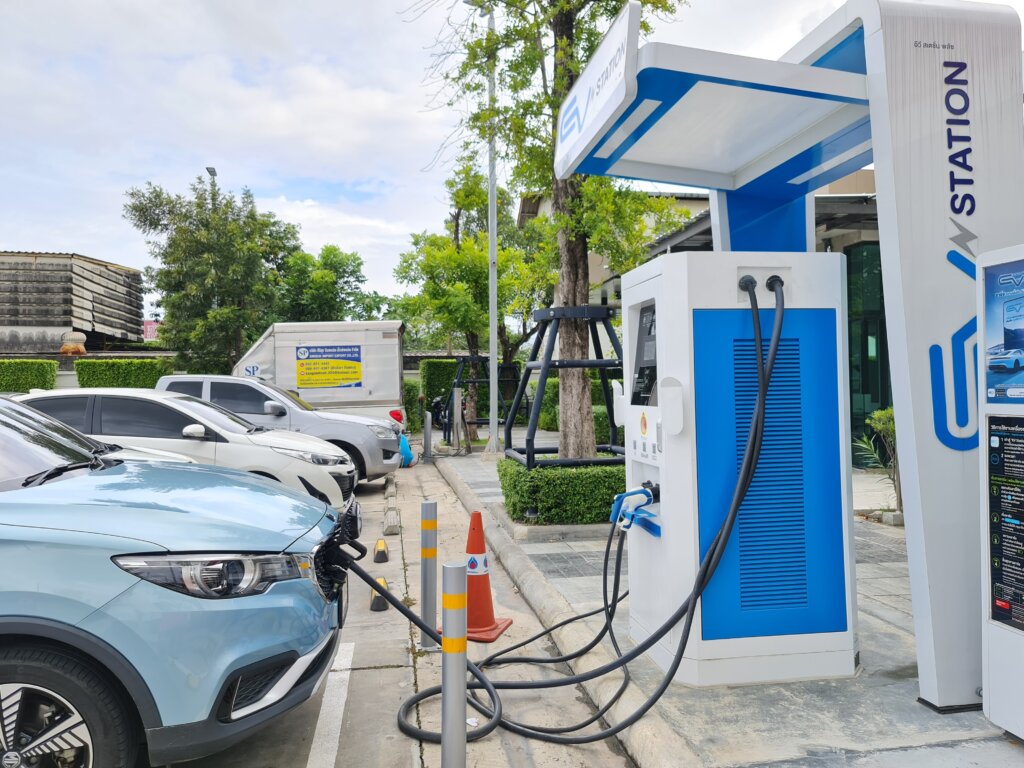
Thailand wants to improve its EV ecosystem. (Image by Shutterstock)
Toyota, Thailand and EV
While Thailand’s EV market is the biggest in the region, there is still competition on which EV brands sell the most vehicles in the country. Currently, the best-selling EV brand in Thailand is China’s BYD. However, other Chinese EV models have also been growing in popularity in the country.
One carmaker that is hoping to make an impact in Thailand’s EV market is Toyota. The Japanese carmaker is already a household brand in Thailand, with its pickup trucks and sedans among the most popular combustion engine vehicles.
As the world’s tenth largest auto hub, Thailand is known for exporting vehicles by Toyota and Honda. But to convert a third of its annual production of 2.5 million vehicles into EVs by 2030, the right ecosystem is key.
According to a report by Reuters, the Thai government is hoping to work with Toyota to develop EVs in the country. This includes the development of eco-cars and pickup trucks. Thailand’s Prime Minister, Srettha Thavisin, met Toyota’s executives to discuss how they can build the EV ecosystem in the country. Toyota, and its group companies, have invested nearly US$7 billion in Thailand over the last decade.
The announcement comes as Toyota plans to trial its first EV pick-up truck in Thailand in a fresh attempt to boost EV sales in the country. Pras Ganesh, executive vice president of Toyota Daihatsu Engineering & Manufacturing, said that its engineers were working on adapting its electric pickups to local conditions and building up EV R&D capacity in Thailand, one of Toyota’s five global R&D centers.
The world’s top-selling automaker unveiled the electric version of its popular HiLux pickup truck last year, but hasn’t said yet when its commercial sales could begin. Ganesh pointed out that a small batch of battery EV pickups will be trialed in the beach city of Pattaya early next year and tested for use as ‘songthaews,’ pickups that are commonly modified for use as taxis in many Southeast Asian countries.
“We will first start looking at public transit,” he told Reuters, adding that Toyota is also considering testing other EV pickups for deployments including last-mile delivery services.
Thailand’s government also rolled out a 3-year tax break for automakers investing in automation and robotics after scaling down a consumer subsidy for EV purchases.
READ MORE
- Safer Automation: How Sophic and Firmus Succeeded in Malaysia with MDEC’s Support
- Privilege granted, not gained: Intelligent authorization for enhanced infrastructure productivity
- Low-Code produces the Proof-of-Possibilities
- New Wearables Enable Staff to Work Faster and Safer
- Experts weigh in on Oracle’s departure from adland


